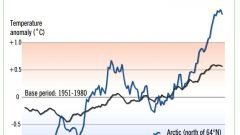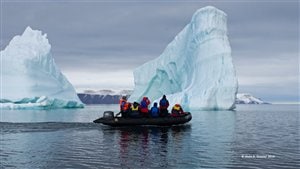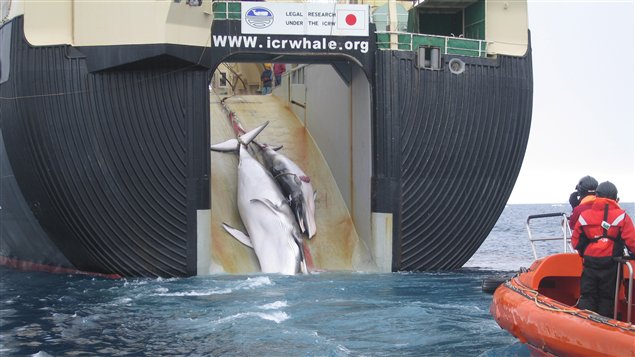International delegations from five Arctic coastal nations are meeting in Greenland this week to discuss Arctic fishing.
Huge sections of international waters in the Arctic, once locked almost permanently in ice, are now opening up in the summer. As the ice melts even faster, there are concerns over the fact there are no rules to control commercial fishing in this delicate ecosystem.

The Arctic is warming twice as fast a the rest of the globe.
(photo: Stockhom Environmental Institute 2013)
The five Arctic nations, Canada, Russia, Denmark, Norway and the US have been discussing the issue.
Last year the US, Canada, and Denmark agreed to a preliminary deal to prevent commercial fishing until more is known about the ecosystem. They hope to convince Russia and Norway to join the agreement this week.
An agreement would prevent commercial fisheries from operating beyond the 200-mile exclusive economic zones that extend from the northern shorelines of the five countries until there has been a full assessment of the fish stocks that are there and how they can be harvested sustainably.
Scott Highleyman is the international Arctic director of the Pew Environmnetal Group in the US. He says, “There’s no science yet telling us how many fish are up there and so starting fishing a population where you don’t even know the baseline, that could be a disaster” .

He added that mandating research before far reaching fishing nations like China and Japan arrive is a unique chance to “fix something before it becomes a big problem” noting that waiting could lead to disastrous consequences.
Daniel Pauly, is a professor at the University of British Columbia’s centre for fishery who petitioned for such an international moratorium until more is known. He said that more must be known about what fish are there and how fast they reproduce.
He says that in cold Arctic waters there is not high productivity, and that nothing grows fast. Vast numbers of fish removed by commercial operations would likely quickly deplete the resource.
Highleyman says, if the five Arctic countries can agree on a common position this week, they could make a strong case for a moratorium to the rest of the world.
Patrick McGuinness, the president of the Fisheries Council of Canada, said his organization fully supports an agreement.
The Arctic is warming almost twice as fast as the rest of the earth and estimates now are that vast areas of the Arctic could be ice free during the summer in as little as ten years.







For reasons beyond our control, and for an undetermined period of time, our comment section is now closed. However, our social networks remain open to your contributions.